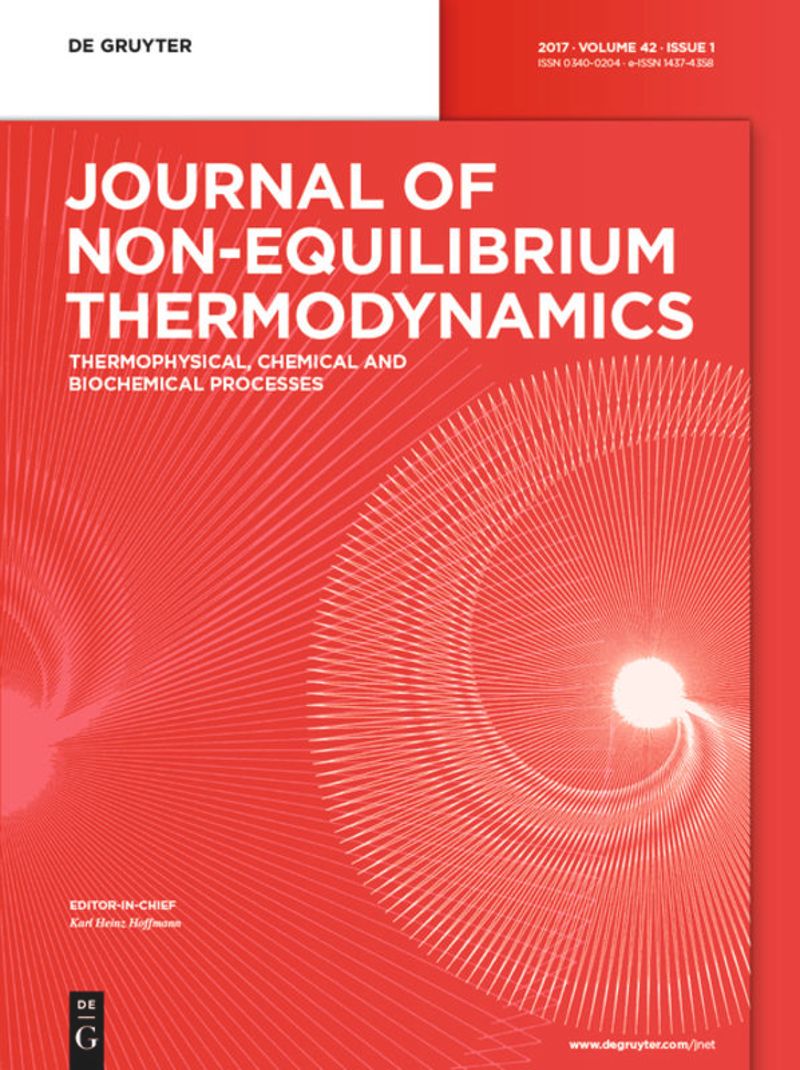逻辑不可逆计算中温度稳定的热力学成本
IF 4.2
3区 工程技术
Q1 MECHANICS
引用次数: 0
摘要
近年来,人们致力于降低位操作的功耗,但仍不清楚这些努力是否足以解决计算中的温度稳定问题。通过将信息热力学与可描述傅里叶热传导以及具有非局部效应的非傅里叶热传输的广义构成模型相结合,我们在此揭示了温度稳定问题中的两种热力学成本。每种类型都会对单位时间、单位体积内的比特操作量施加上限,最终限制比特操作的速度。第一类产生于热力学第一和第二定律,与边界条件无关,可在傅立叶热传导中规避。另一类可追溯到热力学第三定律,它会随着边界条件的变化而变化,在傅立叶热传导中是不可避免的。这些热力学代价表明,降低位操作的功耗不足以解决计算中的温度稳定问题,除非功耗消失。本文章由计算机程序翻译,如有差异,请以英文原文为准。
Thermodynamic costs of temperature stabilization in logically irreversible computation
In recent years, great efforts are devoted to reducing the work cost of the bit operation, but it is still unclear whether these efforts are sufficient for resolving the temperature stabilization problem in computation. By combining information thermodynamics and a generalized constitutive model which can describe Fourier heat conduction as well as non-Fourier heat transport with nonlocal effects, we here unveil two types of the thermodynamic costs in the temperature stabilization problem. Each type imposes an upper bound on the amount of bits operated per unit time per unit volume, which will eventually limit the speed of the bit operation. The first type arises from the first and second laws of thermodynamics, which is independent of the boundary condition and can be circumvented in Fourier heat conduction. The other type is traceable to the third law of thermodynamics, which will vary with the boundary condition and is ineluctable in Fourier heat conduction. These thermodynamic costs show that reducing the work cost of the bit operation is insufficient for resolving the temperature stabilization problem in computation unless the work cost vanishes.
求助全文
通过发布文献求助,成功后即可免费获取论文全文。
去求助
来源期刊
CiteScore
9.10
自引率
18.20%
发文量
31
审稿时长
1 months
期刊介绍:
The Journal of Non-Equilibrium Thermodynamics serves as an international publication organ for new ideas, insights and results on non-equilibrium phenomena in science, engineering and related natural systems. The central aim of the journal is to provide a bridge between science and engineering and to promote scientific exchange on a) newly observed non-equilibrium phenomena, b) analytic or numeric modeling for their interpretation, c) vanguard methods to describe non-equilibrium phenomena.
Contributions should – among others – present novel approaches to analyzing, modeling and optimizing processes of engineering relevance such as transport processes of mass, momentum and energy, separation of fluid phases, reproduction of living cells, or energy conversion. The journal is particularly interested in contributions which add to the basic understanding of non-equilibrium phenomena in science and engineering, with systems of interest ranging from the macro- to the nano-level.
The Journal of Non-Equilibrium Thermodynamics has recently expanded its scope to place new emphasis on theoretical and experimental investigations of non-equilibrium phenomena in thermophysical, chemical, biochemical and abstract model systems of engineering relevance. We are therefore pleased to invite submissions which present newly observed non-equilibrium phenomena, analytic or fuzzy models for their interpretation, or new methods for their description.

 求助内容:
求助内容: 应助结果提醒方式:
应助结果提醒方式:


